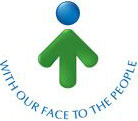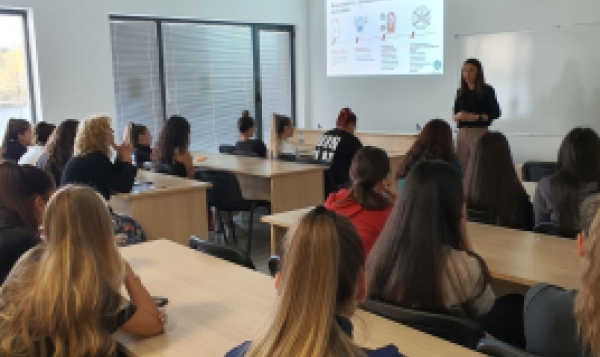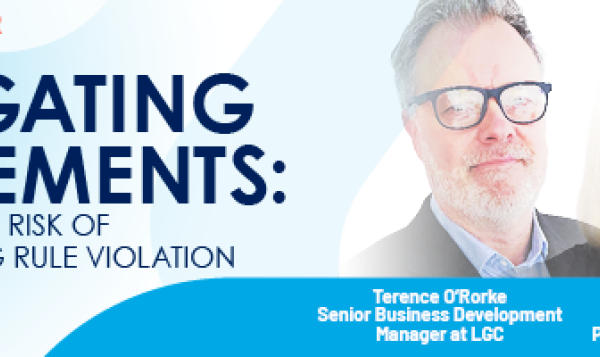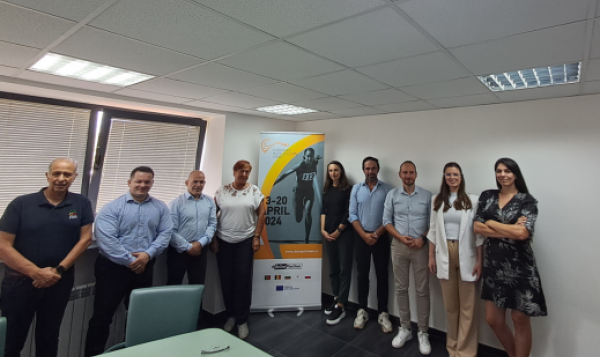WADA updated "Questions and Answers" for athletes in relation to Covid-19
At the end of February the World Anti-Doping Agency (WADA) publishes a new Question and Answer (Q&A)document for athletes related to anti-doping and COVID-19, which is an update to the last version that the Agency published on 25 May 2020.
The Q&A addresses matters such as the following -- reflecting the evolving nature of the pandemic; the changing testing environment; and, the fact that a growing number of Anti-Doping Organizations (ADOs) have resumed normal testing.
- Testing during COVID-19
- Minimizing the risk of contracting or transmitting the virus
- Filing of whereabouts information
- Validating Therapeutic Use Exemptions
- Maintaining the integrity of the global anti-doping system
- Impact of COVID-19 vaccines
- Confidence in the anti-doping system
The Q&A will continue to be updated to provide the latest information to athletes on how testing programs may evolve by integrating further health precautions to protect both clean sport and the health of athletes and sample collection personnel alike. WADA has also provided extensive guidance to ADOs, to ensure that testing is carried out in a secure manner, while respecting regional public health guidelines. The latest such document is the Agency’s ADO Guidance for Testing during COVID-19 Pandemic of 25 November 2020. Athletes who wish to know more about what specific measures their International Sport Federation (IF) or National Anti-Doping Organization (NADO) are taking in the face of this unprecedented challenge are encouraged to contact them directly.
Athletes can rest assured that WADA and the anti-doping community will continue to meet the challenges with their health, and that of all involved in clean sport, front-of mind.
QUESTIONS AND ANSWERS
1. Can I be tested during the COVID-19 pandemic given the restrictions in place, especially as it relates to social distancing and self-isolation?
While respecting health authority regulations on mobility or physical distancing that have been put in place by local authorities, testing may occur anytime and anywhere.
2. If I am tested, what will be done to minimize the chances of infection?
Anti-Doping Organizations (ADOs) must put enhanced measures in place, consistent with the recommendations from health care authorities and considering the restrictions in place, to protect your health and that of sample collection personnel. More information can be found in WADA’s Guidance for Testing during COVID-19 Pandemic of 25 November 2020, including further recommended measures such as the use of Personal Protective Equipment (PPE), hand washing and assessing athlete and situational health prior to the commencement of testing.
3. What specific measures will ADOs take to minimize the chances of transmission?
Firstly, ADOs have been advised that when they conduct testing, sample collection personnel must wash their hands regularly, and sanitize their hands or put on new gloves upon arriving at the testing location. Athletes and sample collection personnel must also wear masks, and as much as possible, maintain the recommended physical distancing requirements as prescribed by local health authorities (one-two metres). In accordance with WADA’s Guidance for Testing during COVID-19 Pandemic of 25 November 2020, ADOs are encouraged to communicate to athletes what specific enhanced precautionary measures they will be taking, as well as collecting information from athletes concerning their health prior to initiating testing. ADOs may have further risk mitigation procedures in place, in line with national or local regulatory guidelines.
4. Can I expect any change in the testing procedures?
While existing International Standards already emphasize both the integrity of the process and the safety of all concerned, you may see adjustments that seek to strike the balance between the protection of clean competition and personal health. Specifically, WADA’s Guidance for Testing during COVID-19 Pandemic of 25 November 2020 recommends that ADOs deploy a ‘prenotification’ process that may include a self-declaration concerning your health status and/or risks vis-à-vis COVID-19, as well as information on what additional health and safety precautions have been and will be taken by sample collection personnel. WADA is also evaluating what has worked well and what has proved challenging for anti-doping in these unprecedented times. To this end, WADA’s Strategic Testing Expert Advisory Group, which was established in September 2020, is learning from this experience and seeing how the anti-doping system may be strengthened further as a result.
5. What should I do if I have contracted or have symptoms of COVID-19?
You should prioritize your health and the health of those around you. If you are concerned that you may have acquired the virus, the priority is to self-isolate and follow other precautions (hand washing, wearing a mask, etc.) as recommended by international health organizations. You should contact your local health authorities to ensure that you are following proper procedures in your region, including when and where to seek testing, medical treatment and assisting with possible contact tracing (if applicable). In an anti-doping context, you should advise your ADO of your situation with your whereabouts submission or when sample collection personnel notify you for testing so that they can adjust their plans accordingly.
6. What if I am in quarantine as a result of being in direct contact with someone with COVID19?
You must follow the public health authority directives. You should advise your ADO as soon as possible and explain your situation.
7. Do I still need a Therapeutic Use Exemption (TUE) if I have a medical condition requiring a prohibited substance or method?
Yes, you remain responsible for ensuring you have a valid TUE. If you have difficulty accessing a physician during the COVID-19 pandemic in order to access the necessary documentation to support your TUE application, you should document all actions and impediments to comply with the relevant requirements, and this will be considered on a case-by-case basis. There are provisions in the International Standard for TUEs where an athlete may seek a retroactive TUE in urgent or exceptional situations.
8. Do I still need to provide my whereabouts information?
Yes, you must continue to provide your whereabouts information. If you wish to share information about your health, self-isolation, mobility restrictions etc., which may impact doping controls, please include this information in your whereabouts submission.
9. Can I refuse to be tested if I am self-isolating, in quarantine, or do not feel that adequate precautions are being taken by sample collection personnel?
In countries where confinement measures are in place, ADOs are being encouraged to test in only the most appropriate situations, and must exercise sound judgement based on a thorough risk assessment of the situation. Unless there is a mandatory isolation/quarantine or lockdown enforced by national or local government authorities, you are advised to comply with testing while following the preventative measures put in place by your ADO, which should be commensurate with the risks at hand. If you refuse to be tested or if you do not complete the sample collection process after notification; or, if you are not able (or willing) to provide a sample due to a lack of protective measures, your refusal will follow the normal results management process, which may result in a period of ineligibility of up to four years. If you rely on the assistance of a representative to assist with the doping control process (especially for minors or athletes with impairments), and a representative is unavailable due to the impact of COVID-19, this too should be taken into account in the results management process.
10. How can I have confidence in the future that I will be competing in a doping-free environment?
WADA is monitoring closely where levels of testing have been reduced altogether and is in close communication with ADOs to work together to find the best ways to be effective during this period. When the sporting landscape returns to a certain normality, these ‘gaps’ in testing will be addressed cooperatively through additional targeted testing especially given that intelligence-gathering and investigations continue. Placing public health above the needs of the anti-doping system means that there may be impacts on the fight against doping in sport. However, there is significantly less training being carried out and significantly fewer competitions taking place. It is also important for athletes to remember that doping control samples continue to be stored for further analysis in the future and that with the Athlete Biological Passport, some samples collected post-COVID-19 may reveal indications of doping that occurred during the period. Finally, you can contribute to anti-doping efforts by ensuring that you are up to date on the latest information and education and encourage your peers and team-mates to do the same. You can familiarize yourself with WADA’s anti-doping education resources by visiting WADA’s Anti-Doping Education and Learning platform, ADEL.
11. Should I take a COVID-19 vaccine or are there concerns that it may cause a positive doping test?
For your own health, for the health of those around you and for the population at large, vaccines against COVID-19 are highly recommended. COVID-19 vaccines are not known to contain any Substance or Method on the Prohibited List or to interfere with anti-doping analysis. WADA continues to closely monitor the situation and the Agency would broadly communicate should this opinion change.
12. Can taking a COVID-19 vaccine affect my performance as an athlete?
Any vaccination can create a temporary physiological reaction accompanied with symptoms (e.g. fever, pain at the injection site) but there is no evidence that the vaccines approved to date would create any sustained performance decrease. It should be noted that, there is some evidence that COVID-19 may cause prolonged or lingering health issues in a small percentage of those infected, including in young adults.











